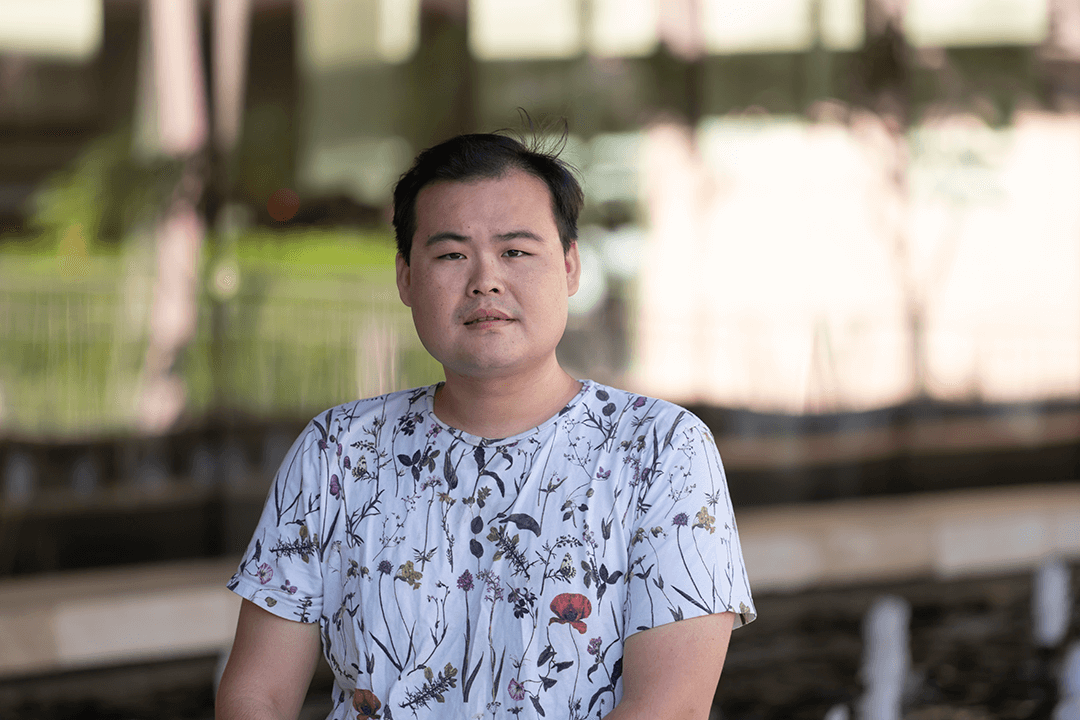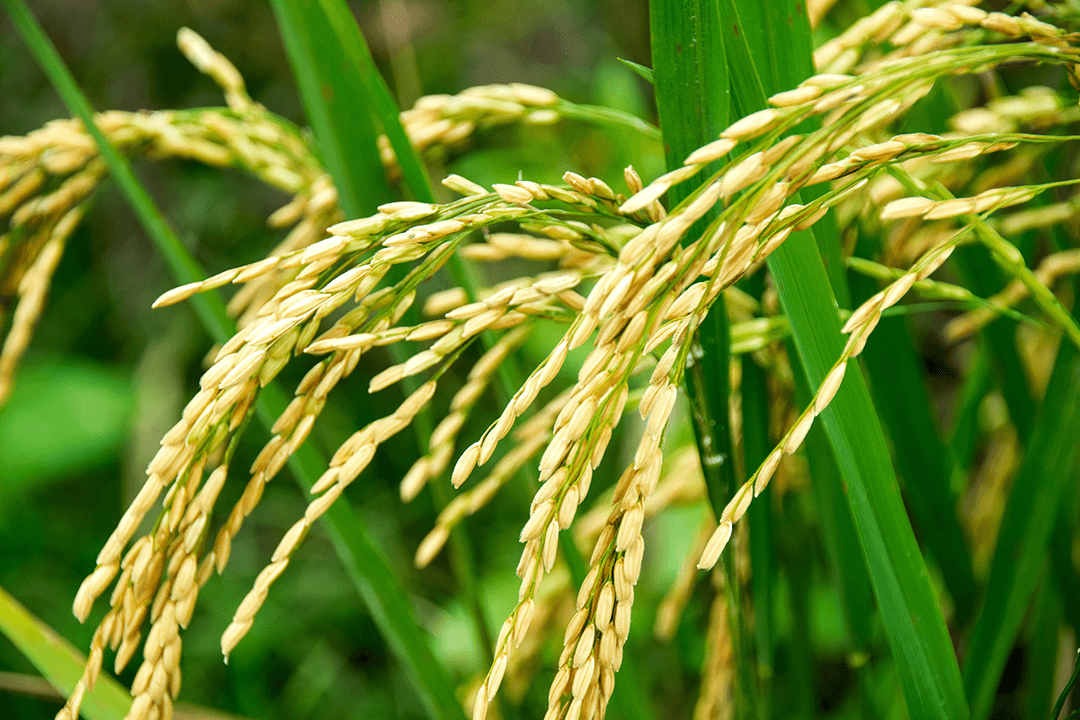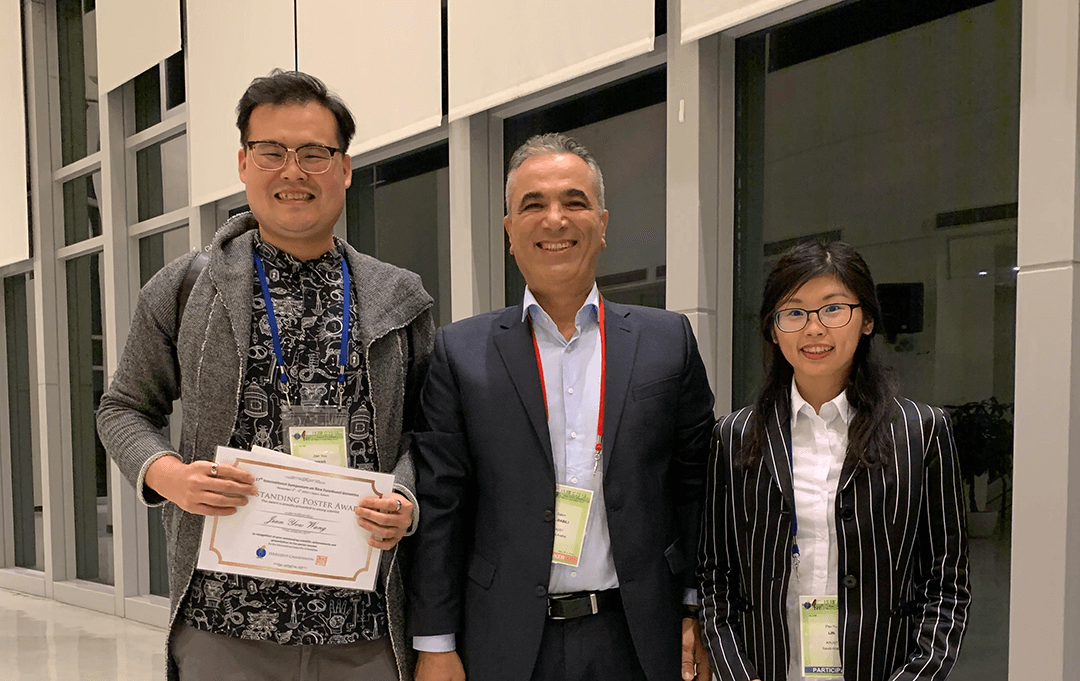Ph.D. student Jian You Wang wins outstanding poster award at International Symposium on Rice Functional Genomics

Ph.D. student Jian You Wang, who is supervised by KAUST Professor Salim Al-Babili, won the outstanding poster award at the 17th International Symposium on Rice Functional Genomics in Taiwan. Photo by Andrea Bachofen-Echt.
By Caitlin Clark, KAUST News
KAUST Ph.D. student Jian You (Eric) Wang recently received the outstanding poster award at the 17th International Symposium on Rice Functional Genomics (ISRFG) for his poster titled "Development and Characterization of Highly Efficient Mimics of the Rice Growth Regulator Zaxinone for Basic Research and Agricultural Applications."
This year, ISRFG took place at Academia Sinica in Taipei, Taiwan, from November 4 to 6. The first ISRFG meeting was organized in 2004, and since then, researchers and scientists from around the world gather once a year for the event to build networks, begin collaborations and exchange information on rice genomics.
ISRFG's organizers state that "Asian rice is [currently] the staple food for half of the world's population, contributing 20 percent of human dietary calories. As the global population is projected to be 10 billion [by] 2050, breeders urgently need to develop new cultivars with higher yields, healthier grains and reduced environmental footprints."

Rice is an extremely important global food crop, and scientists currently work on developing new varieties. Image courtesy of Shutterstock.
A rich research experience
The award-winning research work was co-authored by KAUST researchers Boubacar A. Kountche and Muhammad Jamil; KAUST Ph.D. student Pei-Yu Lin; KAUST Associate Professor Ikram Blilou; KAUST Professor Salim Al-Babili; and scientists from Japan and Spain. Wang's poster was chosen from more than 150 posters presented at ISRFG.
Wang joined KAUST in 2017 after receiving his bachelor's and master's degrees in pharmacy from China Medical University in Taichung, Taiwan, in 2013 and 2015, respectively. His KAUST Ph.D. research focuses on investigating the effect of zaxinone, a carotenoid-derived metabolite that acts as a growth regulator in plants, through the use of analytical chemistry and multi-omics approaches. He is supervised by Al-Babili.

KAUST Ph.D. student Jian You Wang (left) shows off his outstanding poster award certificate at the 17th International Symposium on Rice Functional Genomics in Taiwan. With him are KAUST Professor Salim Al-Babili (center), his Ph.D. supervisor, and fellow KAUST Ph.D student Pei-Yu Lin. Image courtesy of Jian You Wang.
In his poster, Wang examined the development of zaxinone-mimics, which were designed based on a structure-activity relationship study that enabled the research team to develop a set of easy-to-synthesize compounds that potentially act as zaxinone.
Activity tests identified two highly efficient mimics of zaxinone (MiZaxs) that cause a significant increase in root growth and biomass in wild-type rice seedlings. In addition, the two mimics significantly decreased the biosynthesis and release of the plant hormone strigolactone. This effect alleviated the infestation with the parasitic plant Striga under greenhouse conditions, as seeds of the parasite require host-released strigolactones to germinate.
Potential for the future
"It is very encouraging that these mimics can increase the plants' resistance to Striga," Wang explained. "MiZaxs have a large agricultural application potential as growth stimulants and as a novel tool to combat root parasitic weeds, which are a major threat to global food security."
The developed mimics will be tested under field conditions in the frame of the Bill & Melinda Gates Foundation-funded project on combating Striga, which is led by Al-Babili.

Parasitic plant Striga hermonthica, or purple witchweed (pictured), infests cereal crops in sub-Saharan Africa, endangering the livelihoods and food supplies of around 300 million people. Image courtesy of Shutterstock.
"Additionally, MiZaxs are expected to be very helpful in understanding the biology of zaxinone and the regulation of strigolactone biosynthesis and rice development in general," Wang added.
Attending the conference provided Wang with the opportunity to "become familiar with modern topics in the rice field," he noted, giving him more ideas for future projects.
"The conference gave me several new perspectives for my thinking and widened my viewpoints into how biologists and scientists try to answer interesting questions, including biotic/abiotic stress, metabolic regulations, biotechnology and food security issues," he said.

